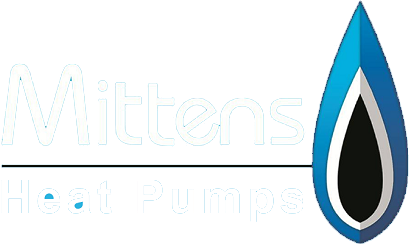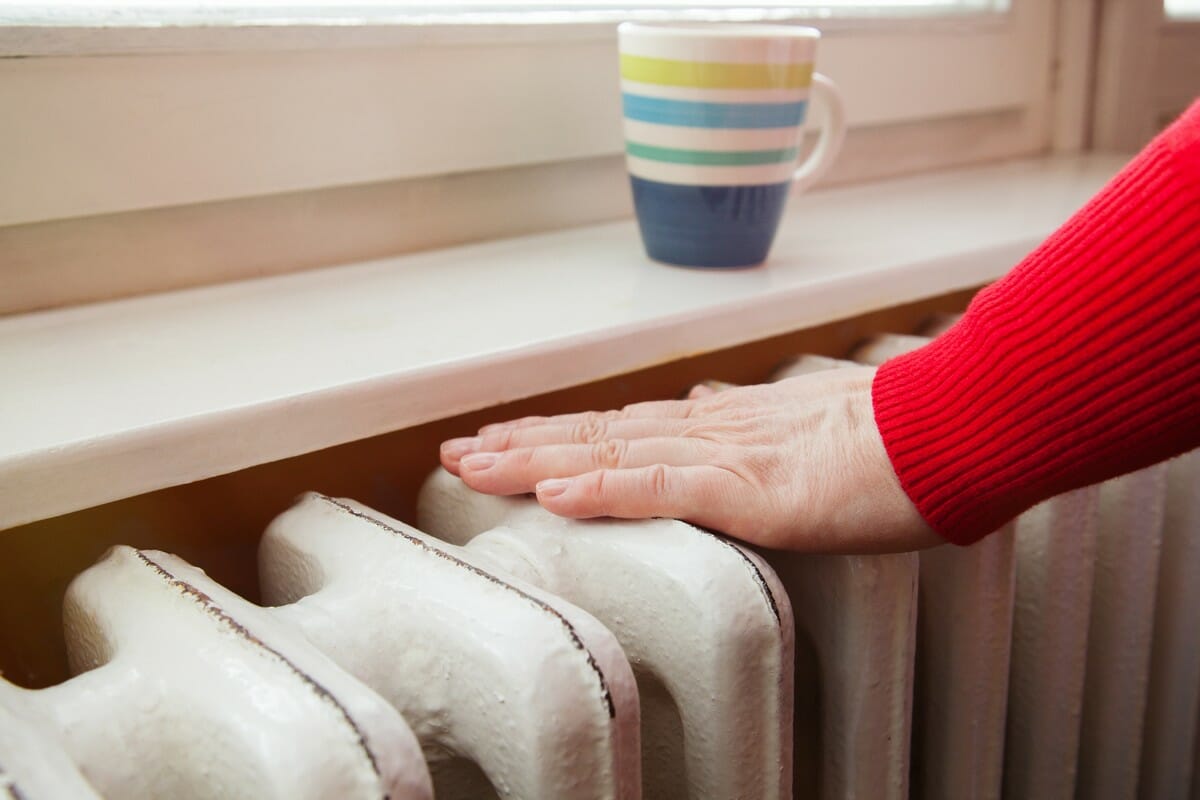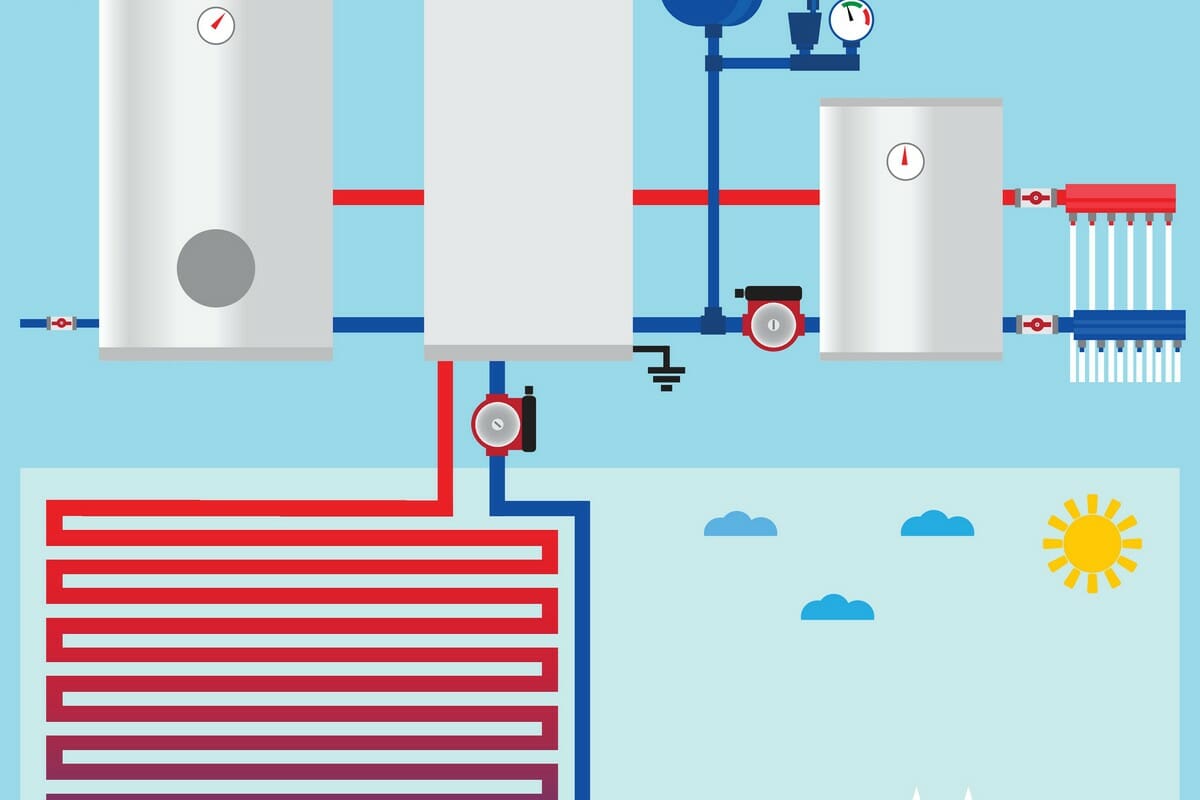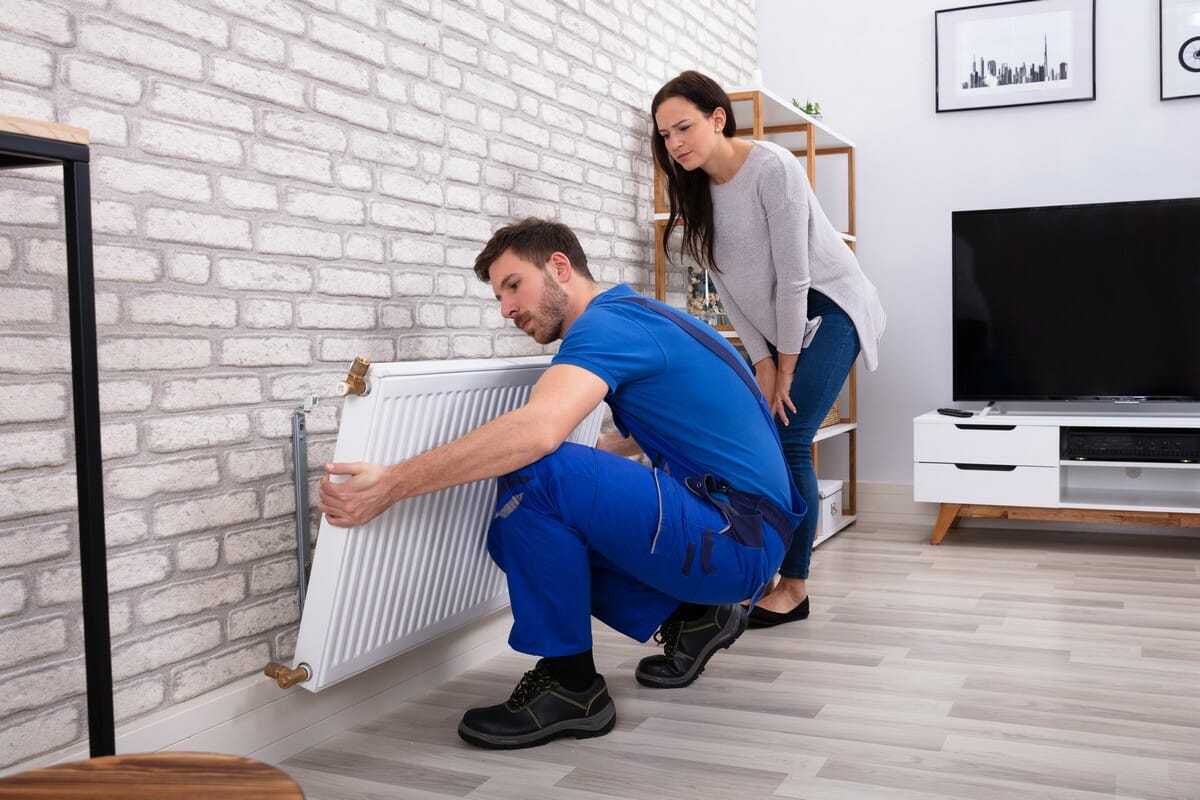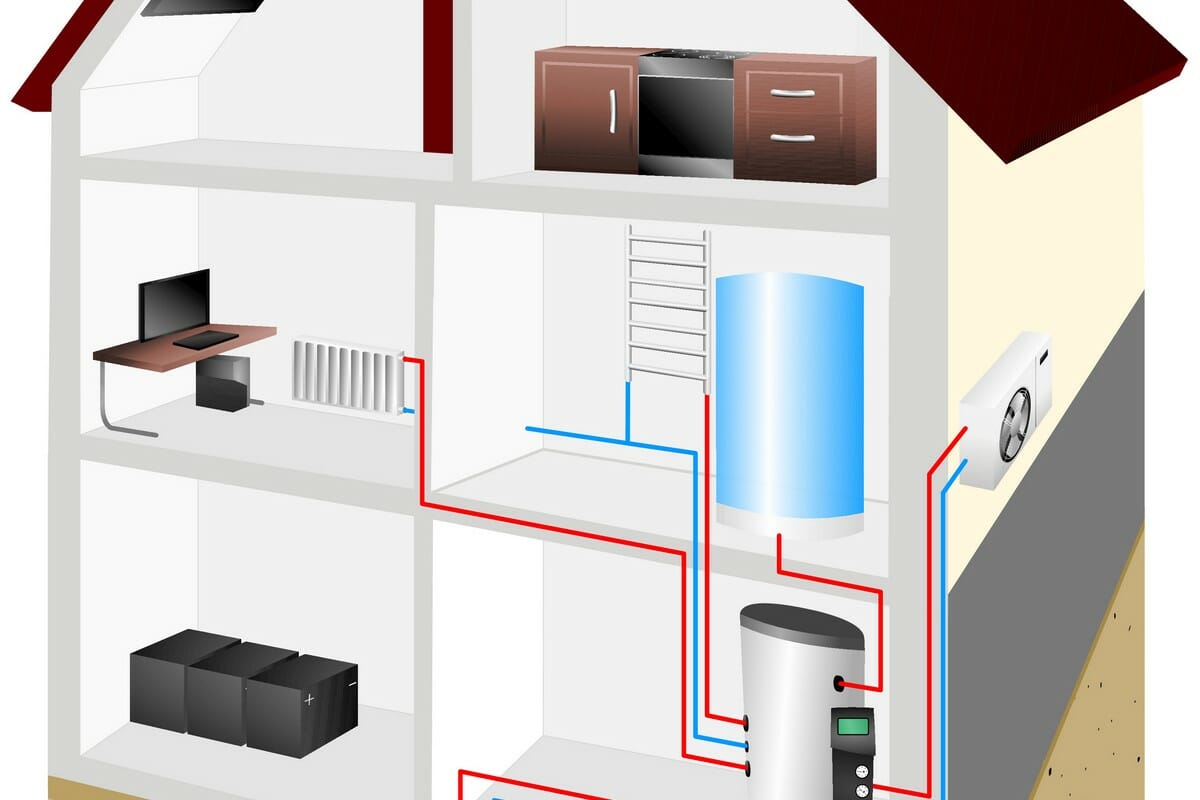Table of Contents
- 1 - Heat pumps explained
- 2 - How does a heat pump work?
- 3 - What are the types of heat pumps we have?
- 4 - What to look for in a heat pump
- 5 - How efficient are heat pumps?
- 6 - How do you install a heat pump?
- 6.1 - Will installing a heat pump help save money on my heating bills?
- 6.2 - Does it cost less to run than a gas boiler?
- 6.3 - Do I need permission to install a heat pump?
- 6.4 - What are the advantages of heat pumps?
- 6.5 - How do I choose the right heat pump?
- 6.6 - What is the cost of heat pump installation?
- 6.7 - Are there any maintenance costs for heat pumps?
- 6.8 - What is the running cost of heat pumps?
- 6.9 - Can heat pumps be used for underfloor heating?
- 6.10 - How to get a heat pump
Heat pumps are one of the most efficient heating and cooling systems available today. Heat pumps aren’t the first thing that comes to mind when it comes to cooling a hot building. You likely think of using an air conditioner instead. But as it turns out, heat pumps work either way. They can both heat and cool; in some applications, it’s preferred to separate heating and cooling systems.
Heat pumps explained
A heat pump is an electrical device that transfers heat from one location to another. This system uses renewable energy to provide heating and hot water for your home. This device extracts heat from the air or ground outside and uses it to generate more heat than traditional natural gas boilers. This means that they can help to reduce your carbon dioxide footprint and save you money on your energy bills.
A heat pump work using the same technology as a cool air conditioner to cool your home in the summer, but it can also reverse the process of heating your home during the winter months.
They function best in moderate climates, so if you don’t have excessive heat and cold in your area, using a heat pump could help you save money each month.
Continue reading to learn more about the most common types and how heat pumps work.
How does a heat pump work?
If you’re thinking about getting a heat pump, it’s important to understand how they work. Everything around us contains thermo-energy – or heat. In nature, heat flows from a warmer place to a colder one.
The heat pump works with the refrigeration principles. It has four main parts: the evaporator, the compressor, the condenser, and the expansion valve.
The heat pump has a fan that pulls the air through your home. The fan is connected to a heat exchanger, which is located in the outdoor unit of the heat pump. The heat exchanger is made of coils with refrigerant that is in a low-temperature state.
The refrigerant inside the coils and begins to heat up when heat from the outside passes over it. This heated air is blown into your home’s ducts and heats up the space inside your home. The refrigerant is then returned to the outdoor unit of the heat pump, where it begins to cool down.
This cycle is then repeated as the heat pump pulls in air from the outside of your home and heats it up. This heated air is then blown into your home.
A local HVAC specialist can assess your heating and cooling needs and propose the best heat pump system for you.
For larger-scale installations, you might like to opt for an absorption heat pump which works in the same way as an air source one but uses ammonia instead of a refrigerant.
What are the types of heat pumps we have?
There are two main types of heat pumps: air source and ground source. Air source pumps are the most common type, and work by extracting heat from the air outside. Ground source pumps work similarly, but extract heat from the ground instead. Both types of pumps have an outdoor unit and an indoor unit.
The outdoor unit contains a compressor and a fan, which draw in outside air. The indoor unit contains a heat exchanger, which transfers the heat to the central heating system or hot water cylinder. The main difference between the two types of pumps is that air source pumps are less efficient at lower temperatures than gas and oil boilers, while earth source pumps can deliver more heat even in cold climates.
Air source heat pumps
An air source heat pump is a type of mechanical heat pump that uses the air as a heat source or sink. In heating mode, an air source heat pump works by extracting heat from the outside air into a liquid refrigerant at a low temperature and transferring it into the building. In cooling mode, the process is reversed and the heat pump removes heat from the building and transfers it to the outside air. The most common type of air source pump is the air-to-air heat pump, which transfers heat between the indoor and outdoor air.
Ground source heat pumps
Ground source heat pumps (GSHPs) are a type of geothermal system that uses the earth as a heating and cooling source to heat and cool your home.
The ground source heat pump transfers heat from the ground into your home in the winter and transfers heat from your home into the ground in the summer. The speed at which this happens depends on how deep the pipe is buried, how much water is flowing through it, and what kind of soil it’s buried in.
Some benefits of ground source heat pump include: • Reduced energy consumption • Reduced greenhouse gas emissions • Reduced operating costs • Increased comfort levels
Water source heat pump
A water source heat pump (WSHP) is a type of mechanical-compression heat pump that uses water as its heat source or “working fluid.” WSHPs are typically used for underfloor heating, but can also be used for hot water production.
What to look for in a heat pump
The size, type, and efficiency of a heat pump system are the three main factors to consider when choosing a heat pump. The size of the heat pump should be based on the size of the area to be heated or cooled. The type of heating pump will determine the amount of energy it uses and how it works. The efficiency of the heating pump system will determine how much energy it saves.
How efficient are heat pumps?
There is no definitive answer to this question since heat pumps can vary greatly in terms of their efficiency. Some heat pumps are designed to be highly efficient, while others may not be as efficient. Factors that can affect a heat pump’s efficiency include the type of heating pump, the size of the unit, the climate it is being used in, and how well it is maintained.
Since the heat pump only uses electricity to power the two fans, pump, and compressor to trap heat outside and bring it inside, the efficiency rate of heating your home goes up dramatically.
Because of this, heat pumps are capable of providing more than 3 units of heat for every unit of electricity used for efficiency rates of over 300%.
How do you install a heat pump?
There are a few things to consider when installing a heating pump, such as the type of unit, the climate, and the specific location.
- Select the Right Unit: Choosing a unit that is too small will not provide enough heating or cooling for your home, while a unit that is too large will be less efficient and cost more to operate. Be sure to consult with a professional to help you select the right size unit for your needs.
- Consider the Climate: If you live in an area with very cold winters, you will need a heat pump that can operate in low temperatures. Some units are designed specifically for cold climate and may include features such as an electric heater backup or an outdoor fan to help move air even when it is cold outside.
- Choose the Best Location: The location of your heating pump is important for two reasons: first, it should be placed in an area where it can receive adequate airflow; and second, it should be close to the main living area of your home so that the heated or cooled air can be distributed evenly throughout.
- Prepare for Installation: Once you have selected the unit and determined the best location, you will need to prepare for installation. This may involve clearing away any debris or vegetation around the proposed installation site, as well as ensuring that there is enough space for the unit itself and any required ventilation components.
- Install the Unit: Following the instructions provided by the manufacturer, carefully install the heat pump unit according to local building code requirements. Be sure to level the unit and secure it firmly in place before connecting any electrical or refrigerant lines. Also, if applicable, install any supplementary outdoor fans or electric heater backup units at this time.
- Connect Electrical and Refrigerant Lines: With the unit installed, connect all electrical wiring according to local code and manufacturer instructions. Then, using approved refrigerant lines and fittings, connect the heating pump to its external refrigerant source (usually an underground loop field). Finally, connect any ductwork needed to route air from the heat pump into your home’s HVAC system.
Will installing a heat pump help save money on my heating bills?
Installing a heating system can help save money on heating bills by reducing the amount of energy required to heat a home. Heat pumps work by transferring heat from one area to another, and can be used to both heat and cool a home.
Even though the compressor and pumps require electricity to operate, their power consumption is much lower than the amount of heat they transfer. The main benefit of heat pumps is that they are much more energy efficient than gas boilers or space heaters, and can help to reduce your carbon footprint
As the outside temperature changes throughout the year, so does the amount of heat energy moved versus that used by electricity.
In the winter, a heat pump extracts heat from the air outside and transfers it inside, while in the summer, it does the reverse. Because heat pumps use less energy than traditional heating and cooling systems, they can help save money on utility bills.
Does it cost less to run than a gas boiler?
The efficiency of a heat pump is generally three times higher than that of a gas boiler, but they require electricity to run, which costs more than gas. However, heat pumps are still cheaper than gas at the moment, given the current gas price.
Do I need permission to install a heat pump?
There are a few things you’ll need to check before installing a heating system First, check with your local zoning office to see if there are any setback requirements or other restrictions that would prevent you from installing a heat pump. You should also check with your homeowners’ association, if you have one, to see if there are any restrictions on installing a heat pump. Finally, check with your utility company to see if there are any restrictions on installing a heat pump.
What are the advantages of heat pumps?
There are many benefits to using a heat pump in your home or office. These may include the following:
Increased Efficiency:
By using the heat from the air or ground around us, heat pumps can provide high levels of heating and cooling without having to generate their heat. This means that they use less energy overall, making them more efficient than other types of HVAC systems.
Low Operating Costs:
Because heat pumps are so efficient, they also tend to have very low operating costs. Running a heat pump can cost as little as one-third of what it would cost to operate a traditional furnace. It is important to maintain heat pumps to ensure they operate properly. Luckily, most heat pumps are easy to maintain with minimal user involvement.
Reduced Environmental Impact:
Heat pumps don’t just save you money – they also help reduce your home’s impact on the environment. By using less energy, heat pumps produce fewer emissions than other types of HVAC systems, making them a great choice for eco-conscious homeowners.
Flexible Installation Options:
Heat pumps can be installed in a variety of ways to suit your home’s unique layout and needs. Whether you need a ducted system or a ductless mini-split system, there’s a heat pump option that will work for you.
Improved Indoor Air Quality:
Many modern heat pump systems come equipped with features that improve indoor air quality, such as advanced filtration systems and UV germicidal lights. These features can help remove pollutants and allergens from the air inside your home, providing a healthier environment for your family.
Enhanced Comfort Levels:
Heat pumps provide consistent, evenly-distributed heating and cooling, which can lead to improved comfort levels in your home. Additionally, many newer models come equipped with features like variable speed fans and two-stage compressors that further enhance comfort by reducing noise levels and temperature fluctuations.
How do I choose the right heat pump?
There is no one-size-fits-all answer to this question, as the best heating system for your home will depend on several factors, including the climate you live in, the size and layout of your home, and your personal preferences. However, some general tips that can help you choose the right heat pump for your home include:
- If you live in a climate with cold winters and hot summers, a dual-stage heat pump may be a good option for you.
- If you have a large home or one with a complex layout, a variable-speed heat pump may be a good option for you.
- If you are concerned about energy efficiency, look for a heat pump with a high SEER rating.
What is the cost of heat pump installation?
Many factors affect the cost of heat pump installation, including:
- The size of the heat pump: A larger heat pump will cost more to install than a smaller one.
- The complexity of the installation: If the installation is more complex, for example, if multiple units need to be installed, this will increase the cost.
- The type of heat pump: There are different types available on the market, and some are more expensive than others.
- The quality of the heat pump: Higher quality heat pumps will cost more to install than lower quality ones.
- The location of the installation: The cost of labour will vary depending on where the heat pump is being installed. If it is in a remote location, it will likely cost more to install than if it were in a more populated area.
Are there any maintenance costs for heat pumps?
Yes, there are some maintenance costs for heat pumps. These include regularly checking and replacing the filters, as well as having the system serviced by a professional every few years. However, these costs are typically much lower than those associated with traditional heating and cooling systems.
What is the running cost of heat pumps?
There is no definitive answer to this question as it will depend on several factors, including the size and type of heat pump, the climate, and the efficiency of the unit. However, estimates suggest that the running costs of a heat pump may be around 50-60% cheaper than traditional heating methods such as gas or oil.
The cost of running heat pumps is likely to be slightly higher for those who use gas boilers (not LPG or oil boilers) unless the heat pump is installed in a radiator or underfloor heating system that ensures maximum efficiency.
Can heat pumps be used for underfloor heating?
Yes, heat pumps can be used to provide warmth for underfloor heating systems. This is typically done by using a water-to-water heat pump, which transfers heat from the ground or water source into a fluid that circulates through the underfloor heating system.
How to get a heat pump
If you’re thinking about getting a heat pump, there are a few things you need to consider first. The most important thing is whether you have enough space for an outdoor unit – this is usually required for both air source and ground source pumps. You also need to think about whether you want a whole-house system or just one for your central heating system or hot water cylinder.
Once you’ve decided what type of system you need, you’ll need to find an installer who can advise you on the best option for your home. You can find a local installer through your local authority’s website, or by searching online for ‘heat pump installer’. You can still apply for a government grant like the boiler upgrade scheme.
The boiler upgrade program was announced in 2021 to reduce the cost of more environmentally responsible heating systems. The scheme is open to existing homes and eligible buildings across England and Wales.
We can help you decide which one is best for your needs
If you’re in the market for a new heat pump, look no further than Mittens Heat Pump Solutions . We offer a wide range of options and can help you find the perfect match for your home. Give us a call today on 01273 257407 to learn more about our services.
